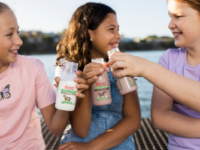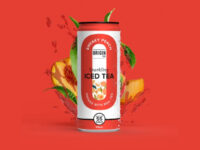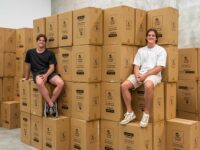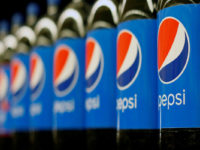
Australians’ love for coffee knows no bounds. But with consumers now more environmentally-conscious than ever, many are questioning how they can make their hot cuppa less wasteful. How about a zero waste coffee pod?
That’s what Kirsten and Mark Williams, founders of Star Eco Products, have achieved with their Pod Star stainless steel coffee capsules.
What started as a family business over a cup of coffee later led to a partnership with discount grocer Aldi and coffee machine maker Caffitaly.
“Pod Star is a family business. My husband and I had sold a business we had operated for over 10 years, and we’d taken 18 months off to re-evaluate our priorities and to connect with the world,” Kirsten told Inside FMCG.
“We travelled for much of that time, gaining broader perspective and refined our values. Over that time, we became increasingly aware of our own impact on the world.”
They wanted to use their business skills and experience “to do something that added value to the world,” to start and run a business that allowed them to stay somewhat free, and that would not harm the environment, animals or people.
“Our goal was to help people eliminate all the waste created by single-use pods. We found a factory in China to produce them, and got working on a website, packaging and some rudimentary marketing,” Kirsten said.
The couple spent the first few months selling reusable coffee pods that can be used with the popular Nespresso machines.
“We had been inundated with enquiries for the K-fee Expressi machines sold in Australia for Aldi. We also had a few inquiries for the Caffitaly compatible capsules. So we worked with our manufacturer to design and make a pod for the K-fee Expressi machines,” Kirsten said.
“It turned out that the pod worked in some Caffitaly machines too. We funded our first production run for the Aldi K-fee pods through Kickstarter. We were funded in less than a week, and our first production run was completed in May this year.”
Tens of billions of single-use pods go to landfill every year, and with many made from plastic, they can take up to 500 years to break down.
“Given the fast rate at which the world population is growing and our recent trend of high consumption and high-use plastic and of ‘throw-away’ items, our planet cannot sustain the amount of waste we are creating. Plastic packaging of goods is a major problem,” she added.
Kirsten thinks the FMCG sector needs to focus more on compostable packaging in the future. She said that circular product design is vital for consumers to start feeling more responsible for the environmental impact they create along the way.
“The big winners going forward will be the companies who find solutions to packaging, particularly food packaging, that eliminates plastic. FMCG businesses will either be forced to comply, or take the opportunity to do the right thing, capitalise on the ‘conscious and caring’ consumer base, and work on their environmental credentials now. It’s largely FMCG that has created the problem and the responsibility of solving it lies with those in the industry.”
This interview first appeared in the October issue of Inside FMCG magazine. Subscribe to the digital or print edition here.
















